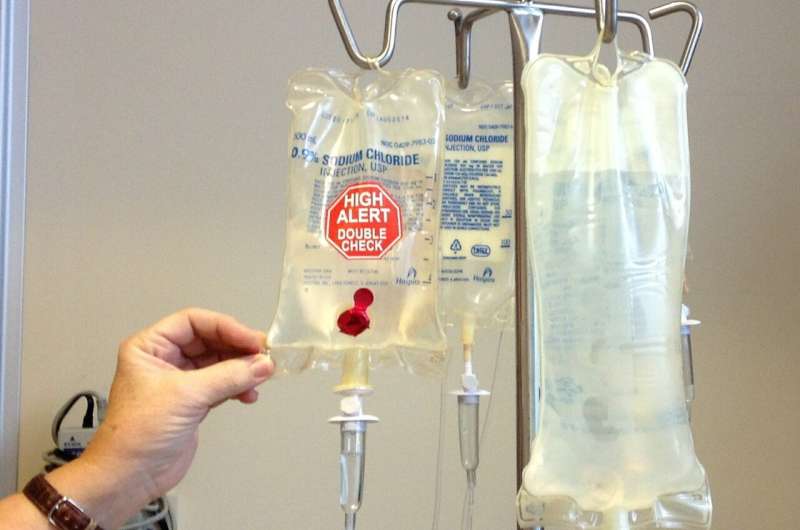Starving gut bacteria to improve chemotherapy outcomes

Fasting before chemotherapy drastically increases the number and diversity of bacteria found in the gut and can improve treatment outcomes, a new study by University of Adelaide researchers has found.
In a collaboration with researchers from the University of Groningen and the Princess Maxima Comprehensive Cancer Center for Children, the study, published today in Gut Microbes, examined whether fasting using a rat model had a protective effect on gut microflora before chemotherapy treatment.
Gut injury is a common complication of cancer therapy, causing pain, bleeding and diarrhea. However these effects are under-reported and poorly prioritized because patients are often too embarrassed to discuss gut symptoms.
Lead researcher Dr. Hannah Wardill from the University of Adelaide's Cancer Treatment Toxicities Group said the "side effects of cancer therapy had long been considered an unavoidable aspect of undergoing otherwise lifesaving treatment."
"We know that the types of bacteria in our gut are highly sensitive to the food we eat and it isn't just the types of food we eat but the amount," she said.
While previous studies have seen positive results from extended fasting, researchers chose to see if acute fasting would have similar effects.
Researchers found that fasting for 48 hours before chemotherapy drastically and beneficially increased the number and diversity of bacteria in the gut associated with improved treatment outcomes. It also slowed the turnover of the cells that line the intestines, making them less susceptible to being killed by chemotherapy.
"Treatment-related mortality is something that is often swept under the carpet because people don't want to think about a life-saving treatment being potentially deadly. But in reality, while highly effective at killing tumor cells, chemotherapy is very toxic and causes severe side effects, which can result in death," Dr. Wardill said.
"We have already shown that fasting for just 48 hours is sufficient to make the gut less susceptible to injury. We now need to understand how we can induce these changes without the need to entirely prevent the individual from eating prior to chemotherapy and without compromising the body composition of the patient."
More information: Wardill et al. Pre-therapy fasting slows epithelial turnover and modulates the microbiota but fails to mitigate methotrexate-induced gastrointestinal mucositis, Gut Microbes (2020). DOI: 10.1080/19490976.2020.1809332





















